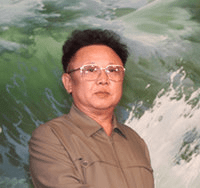On May 12, 2010, Minxin Pei wrote in an op-ed for the Diplomat that "what is most worrying about a possible North Korean collapse is that the key players in the region are not talking to each other, even informally, about such an eventuality." Thanks to the Wikileaks release of a huge cache of U.S. diplomatic cables, we now know that this isn't true. In February, a South Korean diplomat predicted the collapse of North Korea within a couple of years after the death of Kim Jong-Il, and argued that sufficient economic considerations could placate China for the loss of its client state. The cable and others also revealed Chinese frustration over the North Korean regime's unpredictability.
Perhaps the most interesting part of the February communiqué regarded the assertion by South Korea's Vice Foreign Minister Chun that several Chinese officials had privately indicated that Beijing would be comfortable with Korean reunification under the Seoul government, provided certain conditions were met. These conditions included a limitation on U.S. military deployments north of the current DMZ, as well as economic concessions. To be sure, these cables do not give clear indications as to Chinese or South Korean state policy, but they do provide a glimpse into how two of the major regional actors are thinking about the potential collapse of North Korea.
It is widely agreed that the post-reunification reconstruction of North Korea, which has very substantial food and energy needs, would be a development nightmare (.pdf). North Korea's infrastructure is old and incompatible with that of South Korea, while its living standards are dramatically lower than South Korea's. The development of a political infrastructure for unifying the DPRK with South Korea would also be demanding, as North Koreans have minimal experience with the operation of a modern liberal democracy. The construction of civil society in North Korea, as well as the development of private business, would take considerable time. In addition, the process of the collapse of North Korea could prove destructive to the political and physical infrastructure that already exists.

